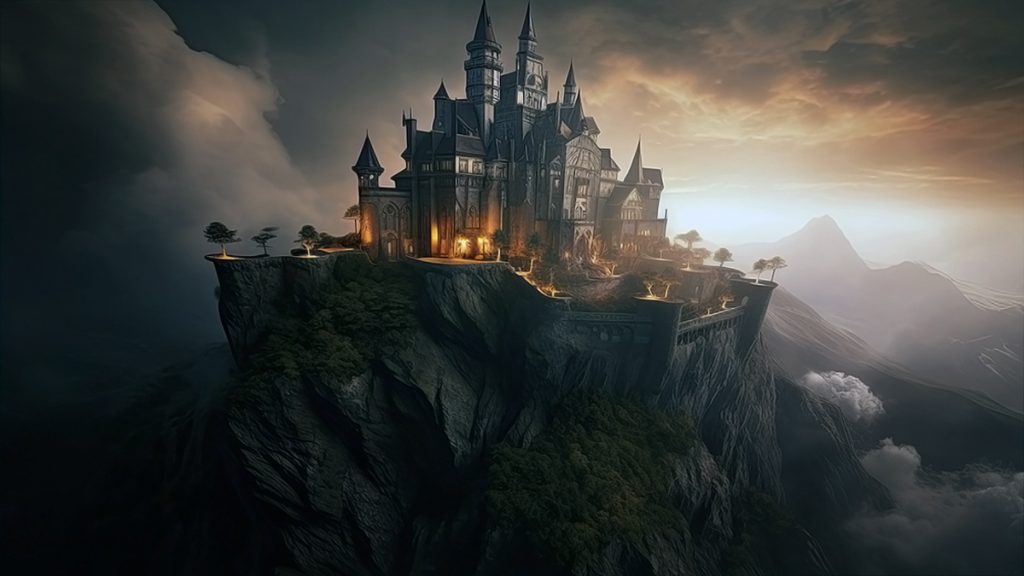The Medici family, known for their criminal activities in the Medici Principality, played a significant role in Arcadian history. However, echoes found in the realm also allow us to consider their positive qualities, such as the sense of unity and distinctive pride that they brought to their communities.
The Medici family’s presence in Arcadian history is notable for their infamous criminal empire. They are remembered not only for their notorious rivalry with the Capones but also for their societal influence, weaving a tapestry of power and fear, covetousness, and philanthropy.
Luzano Medici, the formidable patriarch, rose to prominence following the death of his father, the previous head of the Medici family. His ascension was marked by a sense of vengeance, aiming not only to fill his father’s shoes but also to expand their influence. Luzano’s blend of fiery masculinity and cunning wit secured the Medici’s position at the pinnacle of the Arcadian criminal world.
Luzano’s reign was marked by a seemingly paradoxical strategy of fear and favor. His substantial wealth and influence served as a shield and a sword, allowing him to exert control over the realm. Many echoes speak of their power extending into the underworld. It was believed that the Medici family had a special arrangement with Niefel, the ruler of the underworld, where they would bring her victims for more power over the realm – although this has not been confirmed. He oppressed the weak, dictated the rules of the criminal landscape, but still portrayed themselves as benefactors, instilling fear while earning the trust of the Arcadians. This was a psychological masterstroke that kept the Medicis untouchable.
Despite the family’s criminal pursuits, Luzano emerged as a figure of paradox. His philanthropic actions, including generous donations and aid to the impoverished inhabitants of the region, were a surprising counterpoint to the Medici’s nefarious reputation. They presented Luzano as a character straddling the lines of virtue and vice, blurring the boundaries between criminal and benefactor.
However, the Medici reign was not immune to the perils of power. The long arm of the law eventually seized the family, marking the beginning of their downfall. The arrest of key lieutenants and Luzano himself marked an epoch-defining moment in Arcadian history. The once omnipotent Medici empire crumbled, their limitless wealth and power dwindled into oblivion.
Luzano’s life was a study in irony. His ascent to power, characterized by criminal activities ranging from racketeering to tax evasion, eventually led to his downfall. Despite numerous murder allegations, tangible evidence of his victims was never found. Neither bodily remains nor final sightings were uncovered. This startling absence of evidence lends credence to the chilling narrative that he surrendered his victims’ souls to the underworld. His life sentence served as a stark reminder of the price of unchecked ambition and cruelty. Luzano’s demise in prison punctuated the tragic end of those who chose a path of criminality, his story serving as a poignant lesson to Arcadian society.
The Medici legacy remains a complex narrative of power and paradox, of greed and benevolence. Despite their infamous deeds, they instilled a sense of unity and pride in their community. Their story underscores the transient nature of power and wealth and the inevitable consequences of their misuse.
The Medici family’s tale provides crucial insights, prompting reflection on Arcadia’s power dynamics and societal morality. Their story, fraught with intrigue, ambition, and lessons, remains an integral part of Arcadian history, shaping the realm’s future.
Read More: Dwarves and Drills: The Quest for Ichor



